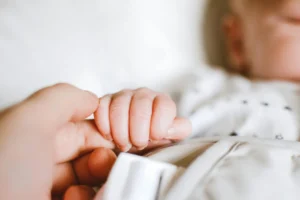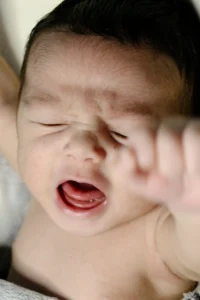Sleep training remains a topic of debate among parents, with concerns often raised about its potential impact on children’s emotional well-being. One common worry is whether sleep training can lead to trauma in infants and young children. At Rocky Mountain Sleeping Baby, we believe in providing evidence-based information to address these concerns. In this blog, we’ll explore the question: Can sleep training cause trauma? We’ll draw upon a variety of research studies and expert opinions to debunk this myth and offer reassurance to parents. Debunking the Myth: Can Sleep Training Cause Trauma?
Dispelling the Myth:
- Understanding Sleep Training: Sleep training encompasses a range of methods aimed at helping babies develop healthy sleep habits. These methods typically involve establishing consistent bedtime routines and teaching infants to self-soothe. While some traditional sleep training methods have faced criticism for potential distress caused by crying, modern approaches emphasize gentle techniques focused on the child’s comfort and well-being.
- Research Studies: a. A study published in the journal Pediatrics examined the effects of sleep training on infant sleep outcomes and maternal well-being. The research found that sleep training methods emphasizing parental responsiveness and consistency were associated with improved infant sleep and reduced maternal depression. b. Another study published in the Journal of Child Psychology and Psychiatry investigated the long-term effects of sleep training on children’s emotional development. The study concluded that sleep training did not lead to adverse emotional outcomes or trauma in children.
- Expert Opinions: a. Dr. Jodi Mindell, a pediatric sleep expert and author of “Sleeping Through the Night,” emphasizes that sleep training methods focusing on gradual, gentle approaches are not harmful to children. She asserts that these methods can promote healthy sleep habits and emotional development. b. Dr. Richard Ferber, author of “Solve Your Child’s Sleep Problems,” suggests that sleep training can actually benefit children by teaching them essential self-soothing skills and promoting better sleep quality.
- Parental Experiences: Many parents who have implemented sleep training techniques with their children report positive outcomes and improved sleep for the entire family. While some initial protest or crying may occur during the adjustment period, parents often find that their children adapt quickly to the new sleep routines without experiencing lasting trauma.
- Recommendations from Pediatric Organizations: Both the American Academy of Pediatrics (AAP) and the National Sleep Foundation provide guidelines and recommendations for establishing healthy sleep habits in children. While acknowledging individual differences in parenting approaches, these organizations generally support the use of gentle sleep training methods that prioritize parental responsiveness and consistency.
In conclusion, the belief that sleep training causes trauma lacks substantial scientific evidence. Multiple research studies, expert opinions, parental experiences, and recommendations from pediatric organizations support the notion that sleep training, when conducted with sensitivity and consistency, does not harm children. At Rocky Mountain Sleeping Baby, we advocate for gentle sleep training methods that prioritize the comfort and well-being of both children and parents. If you have concerns about sleep training or need guidance on fostering healthy sleep habits for your child, please don’t hesitate to reach out to us. Together, we can create a nurturing sleep environment for your family without causing unnecessary stress or worry.
Sources:
- Pediatrics: “Behavioral Interventions for Infant Sleep Problems: A Randomized Controlled Trial“
- Journal of Child Psychology and Psychiatry: “Long-term Outcomes of Sleep Problems in Children”
- “Sleeping Through the Night” by Dr. Jodi Mindell
- “Solve Your Child’s Sleep Problems” by Dr. Richard Ferber
- American Academy of Pediatrics (AAP) Guidelines on Sleep Training
- National Sleep Foundation Recommendations on Infant Sleep





